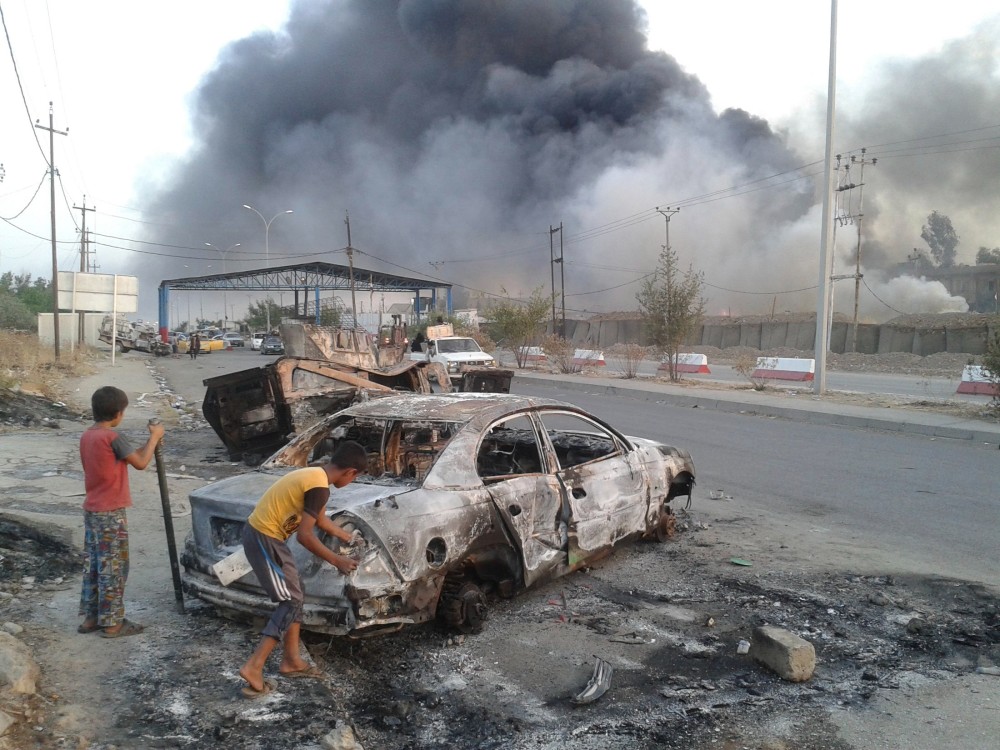
WASHINGTON — Ten years ago, an Islamic State group attacked and took over areas of Syria and Iraq, destroying property and killing members of religious minorities, including Christians who had made their home in the Nineveh region for more than 1,000 years.
The Islamic group took over the Iraqi city of Mosul June 4-10, 2014, and hundreds of thousands of residents fled in fear and desperation.
Three years later, Mosul was back under the control of the Iraqi government, and ISIS lost control of Iraqi territory, but the impact of the brutal takeover is still felt today as the area continues to rebuild.
Eastern Catholic archbishops from the region reflected on the past decade’s experience and the church’s role in helping people forge ahead during a July 3 Zoom call coordinated by Aid to the Church in Need (ACN), an international Catholic pastoral organization whose national headquarters is in Brooklyn.
“In the end, we are here,” said Archbishop Nizar Semaan of the Syriac Catholic Eparchy of Hadiab-Erbil. “The Church does everything to be a sign of hope.”
He added the work of the Islamic State failed since they did not stay in power in Iraq and noted that the “world was watching us” during and after the attack, and is proud to say that “we came back full of life.
“We are a live Church.”
The Chaldean and Syriac Catholic churches in the region not only provided humanitarian aid to those displaced during the insurgence but have also helped with efforts to restore the community and the church at a time when the number of Christians in the country is about 250,000 down from 1.4 million 20 years ago.
“We try, as church leaders and people together, to live our Gospel of hope with the people remaining there,” said Archbishop Bashar Warda of the Chaldean Archdiocese of Erbil, Iraq.
He noted that “people are so attached to the Church” that it’s “a reference point for everything.”
He also stressed that the Church does not exist “for nothing” but to “do something for the people and the community, and to spread the Good News.” He added that the Church concretely lives out its mission by fostering peace, educating people, and providing support and employment.
In 2015, Archbishop Warda founded the Catholic University in Erbil, Iraq. The university currently has 420 students in 12 departments.
Archbishop Semaan said the church can “be here for our mission and to testify to our faith” only through the support of outside groups such as ACN.
ACN International executive president Regina Lynch pointed out in the call that her organization has supported projects in Iraq since 1972. She also spoke of the “shock on people’s faces” during her visit to Erbil after the 2014 attacks.
Lynch said the church aid group has supported about 500 projects over the past few years in the Iraq region, providing an estimated $60 million in financial support, and would continue to stand by the church there “as long as help is needed.”
And help is still needed. Archbishop Warda said the families that remained in the area do not trust the political system and are worried, especially with what is happening in Gaza, that something could happen to them, and it might be too late to leave.
Archbishop Semaan said a major part of the ongoing recovery, beyond rebuilding churches and schools, is being available and listening to or helping people, which is why he said he, as well as local priests, can be reached at almost all hours.
Archbishop Warda noted that while no one has ever apologized for what happened, the Christian community has been able to forgive by its faith and to recognize that “what was meant to destroy you is strengthening you.”
His fellow archbishop agreed, pointing out that “as Christians, we are already forgiving, not looking for revenge” and “with time, healing will come.”
“We have to work with people of other faiths and stay together,” he added.
